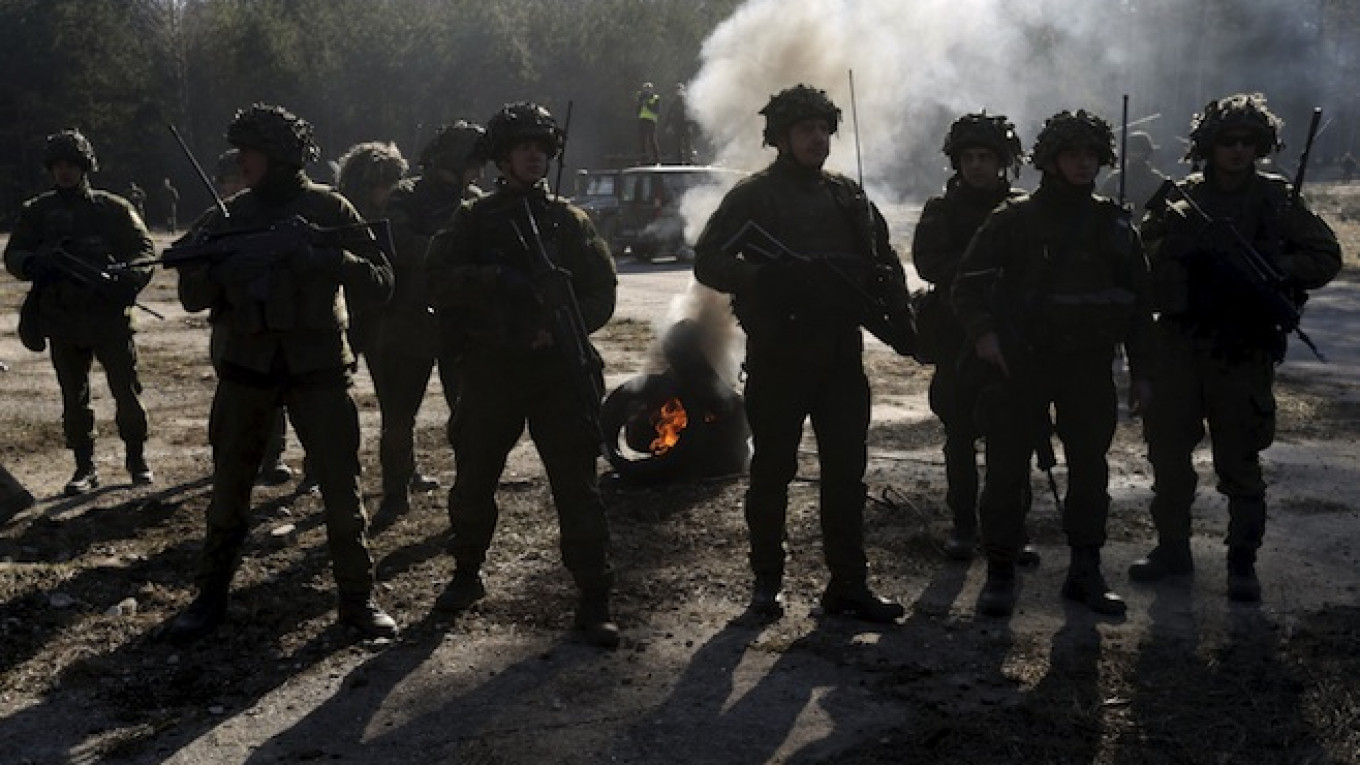Lithuania, spooked by Russian military assertiveness, outlined plans on Friday to raise defense spending by a third in 2016, contributing the highest share of its economy to defense since it joined NATO in 2004.
The Baltic country has never met the informal NATO rule of spending 2 percent of its economy on defense and curbed its defense budget during the 2009-2010 financial crisis. By 2013, Lithuania was spending just 0.8 percent of GDP on defense, the second smallest share of NATO countries after Luxemburg.
The attitude changed in 2014, however, when Russia took over the Crimea peninsula and backed separatists in eastern Ukraine. President Vladimir Putin denies sending troops and weapons to the region.
The Lithuanian Defence Council, a defense policy setting body, on Friday proposed raising military spending by 149 million euros ($164 million) in 2016, to 574 million euros, or about 1.46 percent of the economy, the Defence Ministry said in an e-mail.
Lithuania has already upped defense spending in 2014 and 2015, and its political parties have promised to reach the 2 percent of GDP goal no later than in 2020.
"This will get our army to a whole new level, it will be ready to ensure defense and deterrence, both in its own right and together with the allies," Defense Minister Juozas Olekas told reporters about the defense proposals.
The minister did not mention Russia by name on Friday, but Lithuania's leaders have frequently referred to the threat from its huge non-NATO neighbor and former Soviet master.
Lithuania has warily watched Russian military drills in the Kaliningrad enclave, which borders the country. A drill in December 2014 mobilized 9,000 soldiers and 55 naval ships to Kaliningrad.
If approved by parliament, the increased budget will be used to expand troop numbers and upgrade equipment, and for training with allies, Olekas said.
A Message from The Moscow Times:
Dear readers,
We are facing unprecedented challenges. Russia's Prosecutor General's Office has designated The Moscow Times as an "undesirable" organization, criminalizing our work and putting our staff at risk of prosecution. This follows our earlier unjust labeling as a "foreign agent."
These actions are direct attempts to silence independent journalism in Russia. The authorities claim our work "discredits the decisions of the Russian leadership." We see things differently: we strive to provide accurate, unbiased reporting on Russia.
We, the journalists of The Moscow Times, refuse to be silenced. But to continue our work, we need your help.
Your support, no matter how small, makes a world of difference. If you can, please support us monthly starting from just $2. It's quick to set up, and every contribution makes a significant impact.
By supporting The Moscow Times, you're defending open, independent journalism in the face of repression. Thank you for standing with us.
Remind me later.






